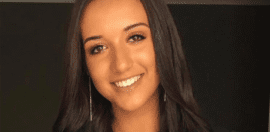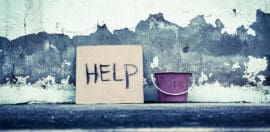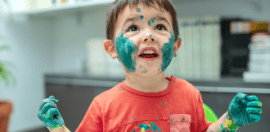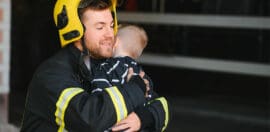Safeguarding children with disability: An area still overlooked?

17 November 2020 at 7:00 am
Natalie Siegel-Brown, managing director of Child Wise, shares her top three concerns about the safeguarding landscape for children with disability.
Did you know that up to a quarter of children with disability experience violence in their lifetime? Children with disability are almost four times more likely to be victims of violence than their peers without disability. Even these figures may underestimate the true prevalence of the issue, due to underreporting or lack of identification. Abuse, neglect and the resulting trauma can look very different for children with disability and many people fail to pick up the warning signs.
I fear children with disability are still drastically overlooked
As public guardian and now managing director of Child Wise, I have deeply examined the safeguarding landscape for children with disability – in particular because I personally operated as a legislative safeguard myself. Despite two royal commissions and the mechanisms of the NDIS, I fear this is an area still drastically overlooked. The consequences may shock you – and I think we are only beginning to see the shadows of them in the current Disability Royal Commission.
Very serious forms of harm still face children with disability
Good child safe organisational practice – that follows the National Child Safe Organisational Principles – take this country’s mindset a big step forward when it comes to safeguarding children generally. But very serious forms of harm still face children with disability. I’ve seen organisations walk past these without heeding the risks or the evidence of the abuse itself.
If I had to name you my top three concerns in this field, they would be as follows:
1. Usurping children with disability of agency and authority
A presumption that children with disability can’t or won’t be able to have a say in decisions made about them. Very often they are usurped of authority through a lens of “they are the passive person to be looked after” rather than an active decision-maker in their own life and a genuine contributor to society – just like any other child or human being for that matter. The more you treat a child or young person with disability as having this authority, the more they will go and flourish. But omissions to do so are a form of oppression and the symptoms can be multiple, including through changes in behaviour.
2. Changes in behaviour go unnoticed
And on the subject of changes in behaviour, it is crucial that these are read and understood as a form of expression – of signalling that there may be a risk in children, adolescents and adults with disability. Abuse and trauma can present as a change in behaviour and/or physical symptoms. Behavioural changes can be confused as symptoms of cognitive disability or psychiatric disorders, when in fact they are acute distress reactions, which should be responded to with care and curiosity. The expression of trauma can be more acutely displayed in a person who has communication difficulties. Imagine if you could not tell someone what had happened to you – or indeed what was happening to you right now, so that it could be acted upon. How would you react?
3. Few people really listen to children and young people who are non-verbal
Which brings me to one of my greatest passions, listening, and I mean really listening to a child who is non-verbal or has limited verbal communication. There is an old but true principle in psychology which is core to effective safeguarding practice. It goes like this: If a person can breathe, they can express themselves. Non-verbal children or those with limited verbal skills are often presumed not to have a voice. There is an even greater onus on us to facilitate them expressing themselves, including ensuring they have effective supports, electronic devices or tools, and mechanisms. And really this goes back to my first point – we have to be ambitious in our mission to hear these children and ensure they have a say in decisions about their own lives.
We can act now
Children and young people with disability can and must be active members of our community. Despite all the work we have done around disability inclusion, there is still a presumption about the desires and wants of children with disability. They have the same hopes and desires as any other child – they will draw their own sense of self-worth from being seen as active contributors to the community.
We don’t need to wait for the mandate of a royal commission. We can act now.
Child Wise is passionate about safeguarding children with disability and is working both nationally and overseas to support organisations to properly safeguard all children.
About Child Wise
Child Wise is a social enterprise of Save the Children. We work with organisations across Australia that provide services to children and young people to help them build a strong child safe culture and environment for children and young people in their care.
Child Wise is committed to the safety and wellbeing of all children. We are uncompromising in our purpose to protect children and young people from harm. We work with organisations of all sizes, across a range of different industries to achieve our mission.
To find out more about how Child Wise can help your organisation become a safe environment for children and young people, please call 1300 244 539 or email info@childwise.org.au







